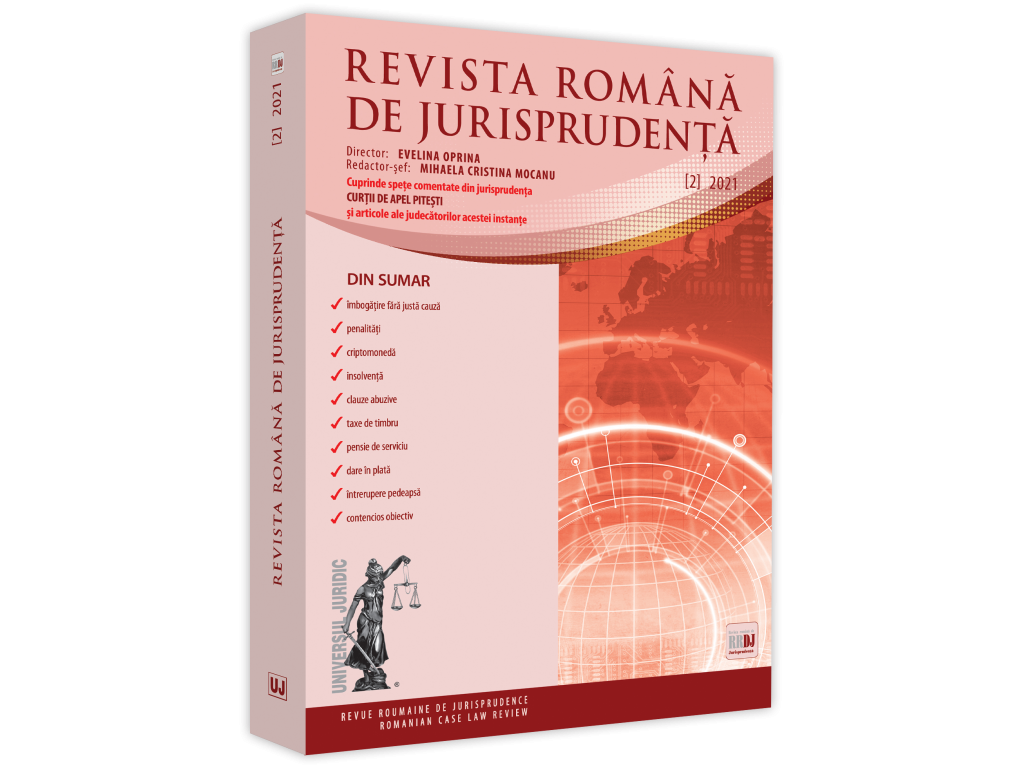Application for the award of statutory penalty interest for failure to comply on time with the obligations to draw up the preliminary file for the issue of the title deed and to submit the documentation to the county commission for the issue of the title
DREPT CIVIL ŞI PROCESUAL CIVIL
Abstract
The defendant, who is the chairman of the local committee under Article 2(4) of GD No 890/2005, must fulfil those obligations and is, in principle, guilty of failing to fulfil the obligations imposed on the legal entity of which it is the legal representative.
However, there is no need to analyse the fault, because no default interest can be awarded in the form of statutory interest under Articles 1522 and 1536 of the Civil Code (default damages in the case of obligations to perform: In the case of obligations other than those for the payment of a sum of money, late performance always entitles the debtor to damages equal to the statutory interest, calculated from the date on which the debtor is in default on the money equivalent of the obligation, unless a penalty clause has been stipulated or the creditor can prove a greater damage caused by the delay in performance of the obligation), being applicable only the provisions of Article 906 of the Civil Procedure Code. Obligations established by title are obligations intuitu personae and cannot be enforced by execution, and in this situation the new Code of Civil Procedure regulates a special procedure, according to which the creditor can be compelled to fulfil the obligation by applying penalties. On the one hand, there is no clear benchmark for the award of damages in the form of statutory interest, as the claimants seek, because the obligation in the title is not an interest-bearing sum of money, but also because failure to perform an obligation to do something, which cannot be performed by anyone other than the debtor, requires the imposition of penalties.
The fact that the first court made a history of the legal relationship between the parties does not mean that it extended the limits of the factual context, nor that it violated the principle of availability. The principle of availability governed by the Code of Civil Procedure requires the parties to decide on their claims and the plaintiff to establish the procedural framework, but does not prohibit the judge from verifying the merits of the claims in the light of other court decisions, and it is even necessary to make a history of them, where they exist, and to analyse the incidence of final decisions in this case.








